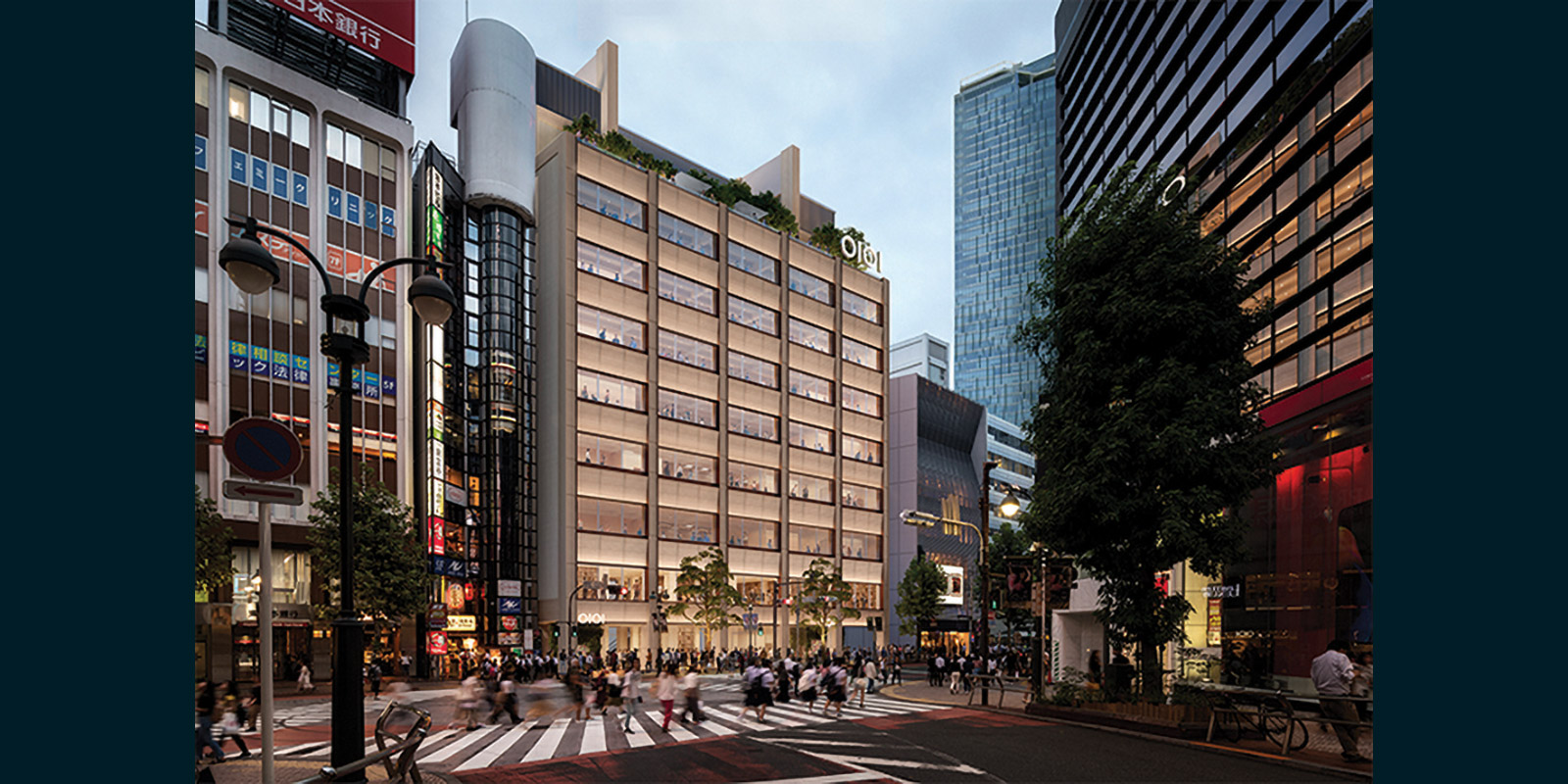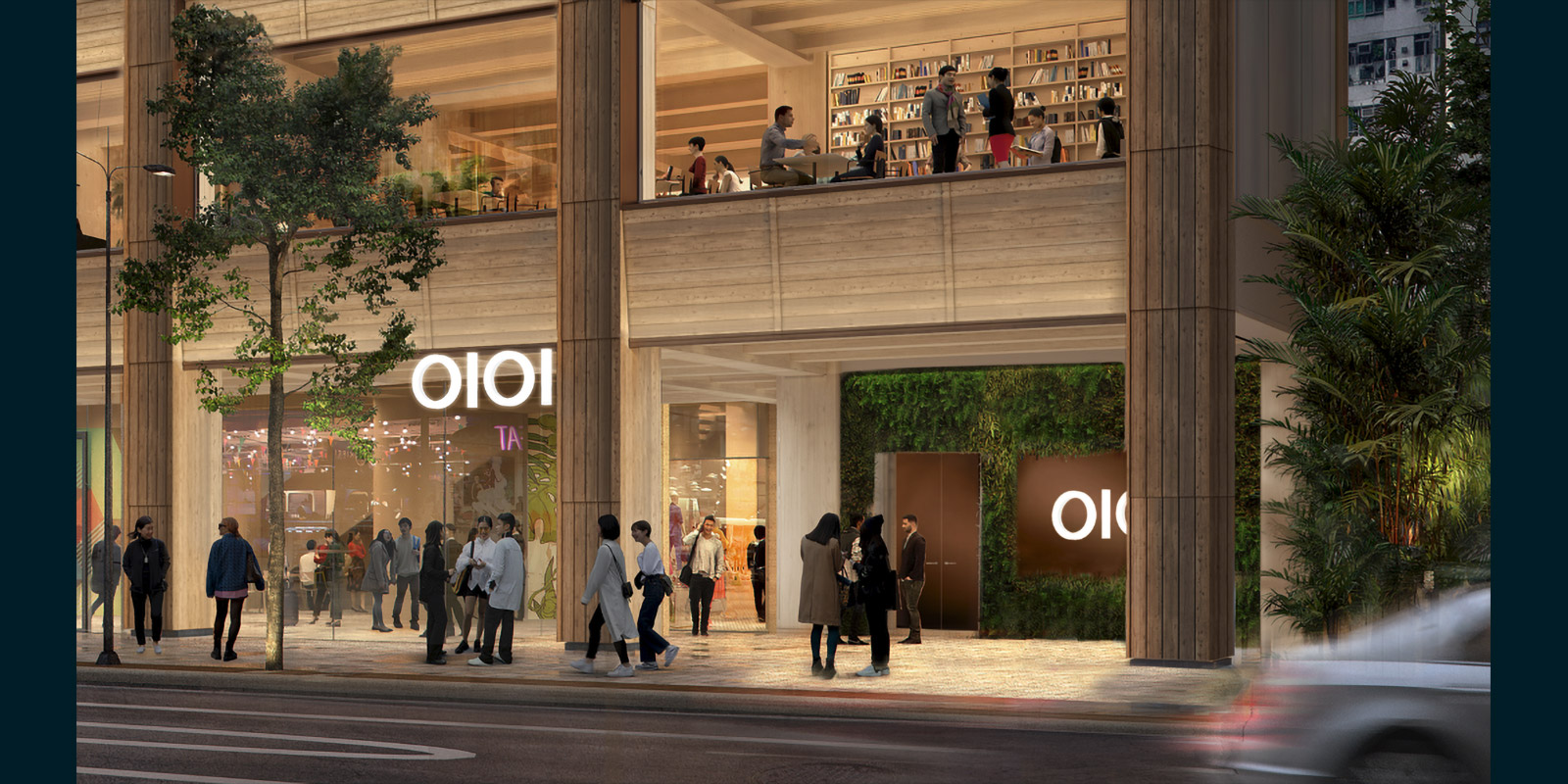Out of the woods
The Shibuya Marui department store is about to raise the bar for sustainability—by being completely demolished and replaced with an eco-friendly wooden version
To say that Shibuya Marui is getting a retro-style makeover would be putting it mildly. The department store, a mainstay in Shibuya since 1971 but arguably overshadowed these days by newer buildings, closed in August 2022 and is now set to be demolished and replaced with Japan’s first full-scale commercial building made of wood.
Shibuya Marui’s dramatic change in appearance reflects consumers’ growing demand for sustainable products
Demolishing and rebuilding a department store with a material that was usurped by concrete and steel in the popularity stakes more than a century ago may seem like an extreme measure, but Shibuya Marui’s dramatic change in appearance reflects consumers’ growing demand for sustainable products and practices. In the UK research from Deloitte published recently revealed that four out of five consumers have adopted a more sustainable lifestyle since 2020, and a report by market research company GWI from 2021 stated that 44 percent of Japanese consumers would be prepared to spend more for an eco-friendly product.
Shibuya Marui’s dramatic change in appearance reflects consumers’ growing demand for sustainable products
Marui Group, the company behind Shibuya Marui, has enlisted the help of Foster + Partners, the British architecture firm known for numerous iconic structures including the redeveloped Reichstag building in Berlin and the Millennium Bridge in London, to design a new nine-story complex. It will offer close to 2,800 square meters of retail space, all dedicated to showcasing sustainable brands. Wood will be used for 60 percent of the building’s structure, with the construction process said to produce around 2,000 tons less carbon dioxide emissions than it would to develop an entirely steel structure.
 The new look Shibuya Marui will be completed in 2026 | Foster + Partners
The new look Shibuya Marui will be completed in 2026 | Foster + Partners
Other sustainable materials will also be used which, along with the use of traditional Japanese building techniques, will reduce the complex’s environmental impact
Wood is an eco-friendly material that in tree form absorbs rather than produces carbon dioxide. Other sustainable materials will also be used which, along with the use of traditional Japanese building techniques, will reduce the complex’s environmental impact.
Shopping that don’t cost the Earth
Upon its completion in 2026, the building will engage in sustainable practices for its day-to-day operations, including using electricity produced from renewable sources. The store itself will specialize in sustainable products provided by brands committed to protecting the environment and contributing to society in a positive manner. Marui Group hopes that by creating an exciting commercial facility such as this, they are providing a blueprint for a more sustainable retail experience. One of the previous projects completed by Foster + Partners, Bloomberg’s European headquarters in London, opened in 2017, received a high BREEAM (Building Research Establishment Environmental Assessment Method) rating, so expectations are for the new Shibuya Marui store to achieve similar.
 Shibuya Marui will be Japan’s first full-scale commercial building made of wood | Foster + Partners
Shibuya Marui will be Japan’s first full-scale commercial building made of wood | Foster + Partners
Marui Group hopes they are providing a blueprint for a more sustainable retail experience
The architects have released some initial drawings, which show the structure as warm and inviting, with the bare wood acting as pillars, flooring, ceilings, counters, and display cases. It’s also shown to cover the entire façade of the complex, in stark contrast to the steel and glass-clad buildings surrounding it.
If consumers are to put their money where their mouths are and start spending on sustainable products, then where better than an entire store that embraces such environmentally conscious goals? The hope is that the store’s radically different look will also be a source of intrigue, and could incentivize in-person shopping when competition from online platforms continues to grow in intensity. If Marui Group gets this right, then a whole new shopping world could be just around the corner.